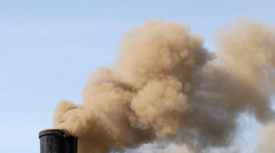News
A Confined Space blog post
Harwood’s last gasp? OSHA announces cruel and bizarre grant round
July 18, 2017
A FairWarning story
Feds reject insurance hike for big-rigs, pleasing independent truckers, rankling safety advocates
July 17, 2017
Never miss the latest news and trends driving the safety industry
eNewsletter | Website | eMagazine
JOIN TODAYCopyright ©2024. All Rights Reserved BNP Media.
Design, CMS, Hosting & Web Development :: ePublishing










